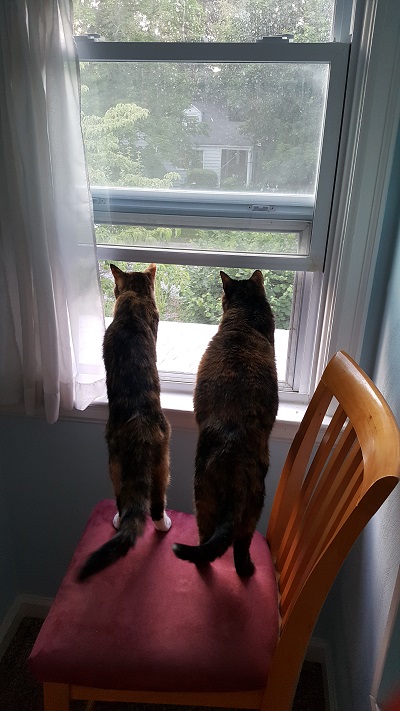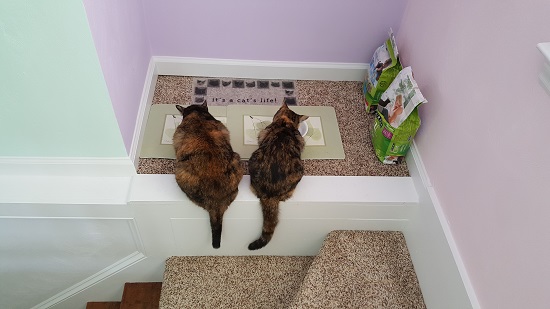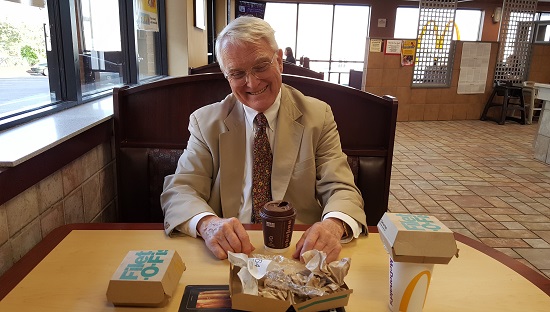I am absolutely delighted with what’s happened as a result of following the advice Maia Szalavitz gave me 8 weeks ago to fall in love with my life.
So much to love!
I love that I live in a little 1944 house in a patchwork of pastel painted walls upstairs. I have only 7 months of payments to go to own the enormous expanse of king-sized bed that feels like sleeping in an open field under the stars. My office is painted floor to ceiling in pink and I type passionately in it for hours every morning. I envision the middle floor as a kind of pretty timeshare that I visit with a bright white kitchen for making tea and a guest room decorated like my mother and grandmothers live here, too, but are just away for a bit. And, shh, don’t tell, there’s a decadent room with only a couch and, yes, a TV, to which I am philosophically opposed, but into which I sneak to watch Orange Is the New Black.
I love my own punkin head and how it works. Since Dr. H. essentially put on rain gear and boots, strode to the edge of the whirlpool of distress in which I was drowning, held her umbrella over dialectical behavior therapy handouts and called out directions over the maelstrom, I have come to feel such love for my mind (and weepy gratitude for her). Thank you, Virginia Tech history professors Dr. Doreen Hunter and Dr. Leslie Mellichamp taught me Hegel’s and Marx’s dialectical thinking.
I so deliciously get that what I think isn’t the whole story, nor is what I feel. Ah, each informs the other for a new synthesis of clarity and wisdom! Go punkin head! Go brain! Show me everything! Wow, such fireworks from thoughts and feelings colliding! I see judgment is the soul-killer, creates the little-death. Radical acceptance? I’m in! I can think it all and feel it all AND do nothing. I can just sit here a minute in my pastel walls and wait for wisdom to come about what to say or do next – or not. Exquisite.
I’m loving studying dialectical behavior therapy (DBT). Developed by Marsha Linehan, Ph.D. in the 1970s, it has been rigorously studied and found effective for an extensive number of acute conditions, including substance use disorder. At age 68, Marsha Linehan shared her personal story with the New York Times. I haven’t yet written about DBT and haven’t found a link that explains DBT clearly and simply enough for my purposes. (Catch that thought / hold that feeling is my offering at this time.) So that’s why I haven’t included links. Here’s the Wikipedia entry for DBT but I laugh every time I read it – well, start to read it because I never finish – because it’s really technical and boring!
How much we need reasons!
How reasons make us feel better!
– from “Noreen” by Peter Meinke, from Scars
 I love my cats. I think I love them newly and more deeply because I no longer try to blind myself to the reality that I feel for them BOTH adoration AND revulsion. The young one has such a pretty face and delicate white toes. She presents herself on my desk in triumph when she comes in from outdoors and touches my nose with hers. AND she brings darling bloodied chipmunks into the house, both alive and dead. I don’t love that she does this and I’m not aware of feeling love for her when I sequester her in the bathroom while I try to funnel the terrified chipmunk out an open door, but I do love that I don’t have black-and-white, either-or thinking about her. She either lives the way I want her to or I won’t love her? She sleeps in a curl like a baby rosebud.
I love my cats. I think I love them newly and more deeply because I no longer try to blind myself to the reality that I feel for them BOTH adoration AND revulsion. The young one has such a pretty face and delicate white toes. She presents herself on my desk in triumph when she comes in from outdoors and touches my nose with hers. AND she brings darling bloodied chipmunks into the house, both alive and dead. I don’t love that she does this and I’m not aware of feeling love for her when I sequester her in the bathroom while I try to funnel the terrified chipmunk out an open door, but I do love that I don’t have black-and-white, either-or thinking about her. She either lives the way I want her to or I won’t love her? She sleeps in a curl like a baby rosebud.
My elder cat turns up her maple syrup-colored stomach to me when I reach to pat her. Every afternoon, she jumps on the bed and looks at me to hurry up for nap time. With all the room on that giant bed, she chooses to sleep on my chest. AND she’s had a painful mouth infection that required all of her teeth to be removed. I have trouble not judging the change in her appearance as disfigurement. My poor baby can’t eat grass anymore or barber her own coat. The tip of her tongue hangs from her empty gums when I give her a good scratching. Oh my. I never would have wished this on her. She either looks the way I want her to or I won’t love her? Companion Animal Clinic rescued her from beside a dumpster and I have giggled every day since I adopted her to see her missing-its-tip tail waving like a metronome.
I love my work.
- Writer (I love what I’m writing.)
- Cat caregiver
- Manager of house with Easter egg-colored walls and garden with blueberries and spinach, assisted by Lucy, Caleb, and pretty much every service provider in town
- Assistant to 83 year-old father a.k.a. Dad wrangler (Woo-hoo, Dad!)
- Counselor at community services agency, 15 hours per week
- Accumulator of 2000 contact hours assisting people in need in hopes of then taking and passing the state exam in hopes of becoming a Licensed Professional Counselor (estimated to complete hours 01/18 in hopes of becoming an LPC before my 60th birthday on 12/30/18. Lots of hopes – we’ll see how it goes!)
- Volunteer community liaison for those seeking addictions treatment in our area
- Crusader and advocate for access to evidence-based treatment for people with addiction
- Crusader and advocate against misinformation about addiction and addiction treatment
- Owner of a small corporation
- Fan of our addictions recovery mobile app New2Recovery in need of a $15K update but for which we have never found an effective business model
I love my people. All these.
Examples of Opposite Sides That Can Both Be True
9. You can accept yourself the way you are AND still want to change. (You can accept others as they are AND still want them to change.)
11. You may have a valid reason for believing what you believe, AND you may still be wrong or incorrect.
13. The day can be sunny, AND it can rain.– excerpts from Interpersonal Effectiveness Handout 16A, DBT Skills Training Handouts and Worksheets, by Marsha M. Linehan
I do not love alcoholism. What didn’t kill me has not made me stronger. I am not a better person for having developed alcoholism, I haven’t built character, I haven’t fill-in-the-blank with any other cruel cliché people use to minimize someone else’s hardship. However, after 3.75 years without alcohol, I do love thinking dialectically about alcoholism.
I love the feelings alcohol gives me AND, if I stay abstinent, I will never have those feelings again.
What relief and power come from acknowledging both are true! Why, thinking that way, a girl could fall in love with her life!




